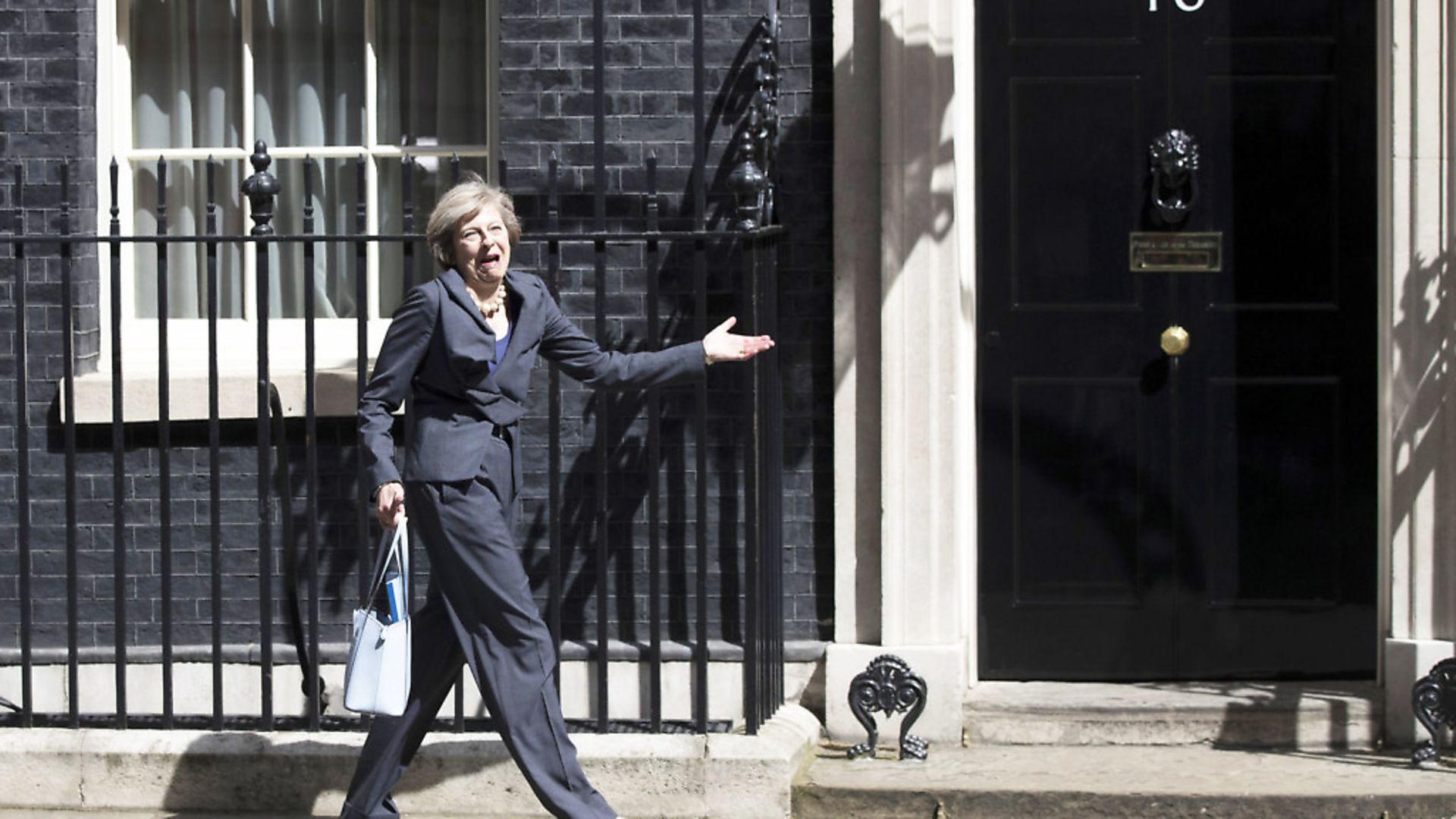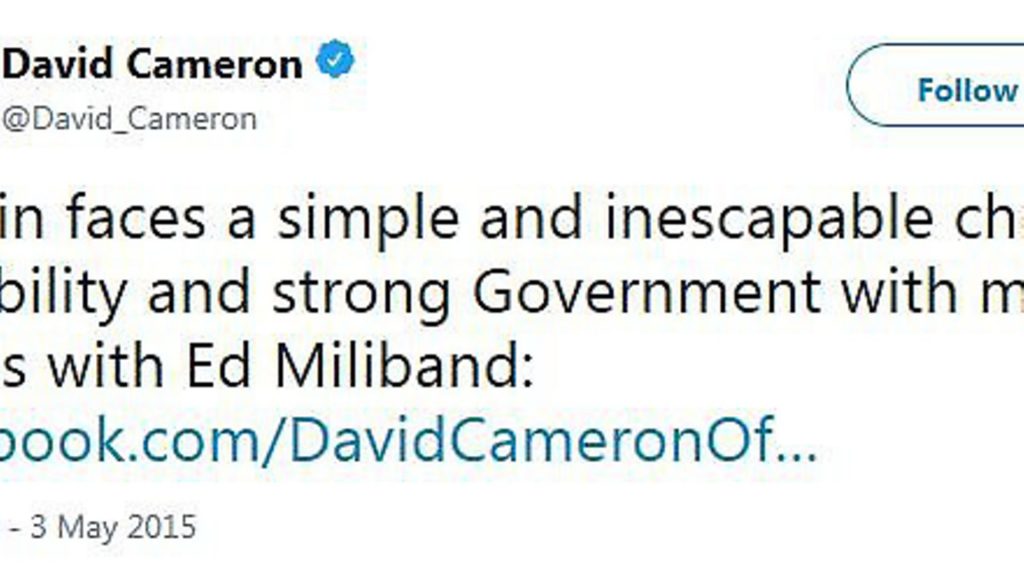
‘Brexit was a demand for change in people’s lives that Brexit will make hard, if not impossible.’

‘The mess we inherited… the mess we inherited… the mess we inherited..’
Remember that one? As slogans go it might not be quite as front of mind right now as ‘take back control’ but in its own way it was just as influential in getting the country to the mess we’re all inheriting right now.
It flowed from the strategy David Cameron and George Osborne had pursued in opposition, when they sought to pin a global financial crisis on the Labour government which had delivered a decade of growth but which ended badly, thanks largely to US sub-prime spivvery.
Because of worries about the young Tory Turks, and the residual strengths of Gordon Brown and much of the New Labour record, Cameron and Osborne were denied a majority. But they became prime minister and chancellor in the coalition government and executed an austerity strategy whose savage cuts were endlessly justified by that incessant drumbeat: ‘The mess we inherited… the mess we inherited… the mess we inherited.’
Then onwards to the 2015 election, and though the austerity cuts and the cruel Iain Duncan-Smith welfare reforms were beginning to bite, the full impact had not yet been felt – there were even some city centre streets with no people sleeping on them – and so they could still argue they were fixing ‘the mess we inherited’ and urge the country ‘not to give the keys back to the people who crashed the car’.
Then they turned opinions polls indicating a highly uncertain outcome to their advantage, suggesting that the alternative to a majority Tory government was a coalition in which Ed Miliband was propped up by the SNP. Such was their confidence that Cameron felt able to send out what is surely the winner of the ‘tweet least well aged’ award: ‘Britain faces a simple and inescapable choice… stability and strong government with me, or chaos with Ed Miliband.’
If the country had known then what it knows now the Miliband-Sturgeon alliance might well have been what the country decided to go for. Because the chaos flowed from another key element of Cameron’s 2015 platform, the promise of an in-out referendum on EU membership and surely even he must admit, whatever mess he claimed to have inherited from Gordon Brown and whatever mess anyone thought might flow from a Labour-led coalition, they are as nothing compared to the mess we have now.
‘Strong and stable … strong and stable … strong and stable …’
I’m sure you remember that one too. The drumbeat of the 2017 election, the one called when Theresa May decided that, you know what, when it suits her she thinks a second vote might be a very good idea indeed.
A bit like the splendid ‘woman in the yellow jacket’ who tore into May on Fiona Bruce’s first BBC Question Time last week, I ran out of sympathy for the prime minister a long time ago. Of course, in some ways she inherited a bit of a mess from David Cameron, taking over the leadership of a divided country which had just voted for a decision bound to dominate her premiership and prevent her from having the time, energy and bandwidth to address the big issues she said she cared about when she took office.
So, not an easy wicket for the self-styled Geoffrey Boycott of politics to play on. But for all her whingeing about the plotters and the People’s Voters, and all the others she likes to blame for her failure to get a good deal or get it accepted by parliament, she is the one who has taken the difficult situation she inherited and turned it into an almighty mess that risks doing lasting damage to the country.
She could have tried to bring the country together. She didn’t. She could have tried to reach out to all strands of opinion. She didn’t, and the spectacle of her reaching out to trade union leaders two and half years on revealed not only how desperate she had become but how badly she had handled the process up to now.
Pandering to the European Research Group. Shutting down options when she didn’t need to. Dreadful ministerial appointments. Going along with the have-cake-and-eat-it/they-need-us more-than-we-need-them arrogance of Boris Johnson and David Davis. The snap election. Triggering Article 50 without a plan. Failing to read the reality of what the Europeans were saying. Failing to keep parliament properly informed and properly involved (and why she is surprised that parliament is fighting back and trying to grip things now is beyond me).
Then the agreement itself. She likes to pretend opposition to it is all about the backstop. It is about so much more. Did she really ever think she could get a majority for it? Clearly she did. Maybe she still does. She was wrong then. She is wrong now.
So we are all agreed – we are in a mess. The question is – how to get out of it? First of all, by everyone accepting there are no easy answers. The mess is big and the possible ways out are complex and fraught. All of them.
Back to Europe and try again? I can think of no prime minister more suited to the idea that might be the right approach; and no prime minister less suited to the task of doing so successfully. It means winning people over by argument and persuasion, not stubbornness and slogans. She can’t do it.
Reaching out to other parties to see if there might be a compromise position. Yes it might work. But again this is not her style or forte. Nor is it Jeremy Corbyn’s style to want to co-operate with the Tories. Politics is about disagreements more than agreements. Political argument is a means of resolving the disagreements and turning them into policy that commands support. The scale of the defeat of the prime minister’s deal showed not just how badly the deal is considered to be (bear in mind most of the ministers who voted for it think it awful too) but also the scale of the disagreements the referendum has exposed.
General election? I can see the point. But would it really solve the issue? I don’t think so.
Norway? There is some support for the so-called Norway option in Parliament but not enough to get a majority, and in any event it totally puts us into the rule-taker not rule-maker state that most seem keen to avoid, so will unite ardent Leavers and Remainers alike.
Campaigning for a People’s Vote, I have long felt that we were going to end up with this parliamentary impasse, so that at some stage the issue would have to go back to the people. I still believe it. But I also know that if it goes ahead this route too is fraught and complex. The questions about the question are legitimate. The worries about the impact on democracy are not to be sniffed at.
David Cameron did indeed say June 23, 2016, was to be a one-off. We can argue all we want that it should have required a super majority to make such an enormous change but that was not the basis on which the referendum was set up so we are wasting our breath.
The hard right will of course seek to exploit a narrative of betrayal to justify and ventilate their agenda of hate and division. This is not, contrary to what some ministers have suggested, a reason not to have another vote. It is, however, something to bear in mind.
I am confident we could win a vote for Remain and reform, whether against no-deal or May’s deal, or against Norway or Canada. But nobody should imagine it will be easy. The campaign has done a great job getting us this close to a vote, but we are still not there.
If and when we get there, we will have to fight a better, more positive, more hopeful campaign than the one fought in 2016. We will not get very far telling people they were wrong (and I wish Brexiteers would stop saying we ever said they were stupid or racist, because I for one never have and never would). We will have to show not just that we believe passionately in the UK being in the EU, but that we understand why so many felt – and still feel – otherwise.
Time for my old favourite – ‘Tough on Brexit. Tough on the causes of Brexit’. Everywhere I go, I hear people saying they ‘just want it sorted’. They’re sick of hearing about Brexit on the news day after day. They know that big things that matter to them – schools and hospitals, crime, transport, poverty – are not being addressed because this is a one-issue government and a one-issue parliament.
But the only way to ‘sort it’, the only way to get it off the agenda, get closure so we can move on to other things, is actually through a second referendum, with the option to Remain. May’s deal does not ‘sort it’ but sets us up for years of argument and division about our future relationships and all that flows from that. No-deal will not ‘sort it’ because it will herald chaos that will take years to unravel. ‘Tough on Brexit. Tough on the causes of Brexit.’
If it is the right thing, do it. If it is not, then don’t. But if we don’t, then for heaven’s sake make sure we address those issues that led people to take the opportunity of the referendum to say to government, to MPs, business, to the so-called elites – this world is not working properly for us. That is what needs to be sorted. Brexit was a demand for change in people’s lives that Brexit will make hard, if not impossible. A second referendum opens the door to real change for the better being hard, but possible.
The mess we have inherited means there are no easy choices. We have to try to end up with the least worst, and that means a People’s Vote. Sooner is better than later, but later is better than not at all.










